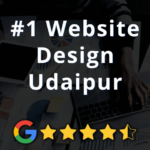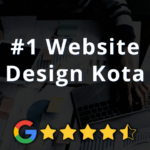If you find yourself thinking, “I want a website for my business,” you’re making a smart move to expand your business’s reach. Having a website is like opening a window to the world, allowing potential customers to discover your products or services, reach out to you, and even make purchases.
Creating a website is more accessible than ever, and it’s not something you have to do alone. You can ease the process and ensure a professional touch by hiring an expert website design agency. These professionals have the skills and knowledge to craft a website that not only looks fantastic but also functions seamlessly.
Working with a web design agency can save you time and ensure that your online presence is top-notch. They can help you define your website’s purpose, select an appropriate domain, and take care of all the technical details, leaving you to focus on what you do best – running your business.
So, if you’re thinking, “I want a website for my business,” remember that you don’t have to go it alone. Consider enlisting the help of a web design agency to ensure your online presence is both impactful and professionally designed.
I Want a Website for My Business, Why Does Your Business Need a Website?
In this age of digital dominance, the question isn’t whether your business needs a website – it’s a matter of survival. We live in an era where the internet is the first stop for anyone seeking information, products, or services. If your business isn’t online, you’re leaving money on the table and potential customers in the dark.
Having a website isn’t a luxury; it’s a strategic imperative. It’s your 24/7 storefront, open to the world, ready to showcase your products or services, answer questions, and seal deals, even while you sleep. A website offers you an incredible opportunity to reach a global audience, expanding your market far beyond your physical location.
But it’s not just about being present; it’s about building trust. A professionally designed website lends credibility to your business. It’s your chance to tell your brand story, share testimonials, and demonstrate expertise. Without it, your competitors are reaping the benefits, while you’re stuck in the shadows.
In a world driven by technology, a website is your key to unlocking growth, engaging with customers, and driving revenue. Don’t procrastinate; the time to establish your digital presence is now. Invest in a website, embrace the future, and watch your business soar. Your success is just a click away.
I Need a Website for My Small Business: Key Role of a Website
Let’s dive into the importance of having a website for your business. In today’s digital age, a website is like your business’s online address. It’s where people can find you 24/7, no matter where they are. Your website is a digital storefront where you can showcase your products or services, provide essential information, and give potential customers a glimpse of what you’re all about.
But a website is not just about visibility; it’s also a credibility booster. Having a professional website makes your business look trustworthy and reliable. It’s a bit like wearing a sharp suit or a pretty dress for a meeting – it leaves a good impression.
Another crucial role of a website is to expand your reach. It allows you to tap into a global audience. So, if you want to attract customers from different corners of the world, a website is the way to go.
In a nutshell, a website is your digital identity, your online marketing tool, and your key to connecting with a broader audience. If you’re not online, you’re missing out on a world of opportunities. So, it’s time to get your business on the web – it’s a smart move that can lead to significant growth and success!
I Want to Make a Website for My Company: Essential Elements for Building a Website
Website Hosting
When you’re creating a website, hosting is the place where your site lives on the internet. Think of it as your website’s home. It’s where all your website files and data are stored, allowing people to access your site. There are various hosting options available, each with its own features and costs, so choose one that suits your needs.
Business Domain
Your domain is like your website’s address on the internet. It’s the web address people type into their browsers to visit your site. Picking the right domain is crucial, as it represents your brand. Keep it simple, memorable, and relevant to your business.
Theme and Design
The look and feel of your website matter. Themes and design elements determine your site’s appearance. Choose a design that aligns with your brand identity and is user-friendly. A well-designed website not only looks good but also enhances the user experience.
Build Pages
Building pages is where the magic happens. You’ll create different pages for your website, such as the homepage, about us, services, and contact. Each page should have engaging content and a clear purpose. Remember, the goal is to provide information and engage your visitors.
Payment Gateway
If you plan to sell products or services online, a payment gateway is essential. It’s what allows customers to make secure online payments. Ensure your payment gateway is user-friendly and provides multiple payment options to accommodate your customers’ preferences.
Enquiry Form
An inquiry form is a valuable tool for engaging with your visitors. It lets them reach out to you with questions or requests. Keep it simple, and ensure that inquiries are directed to the right department or person within your organization.
SEO Website
Search Engine Optimization (SEO) is a game-changer for your website’s visibility. It involves optimizing your content to rank higher on search engine results pages. Incorporate relevant keywords, meta descriptions, and high-quality content to attract more organic traffic.
Website Promotion
Building a website is just the first step. To get noticed, you need to promote it. Use digital marketing strategies like social media, email marketing, and online advertising to drive traffic to your site. Regularly update your website with fresh content to keep visitors coming back.
These essential elements will help you create a strong online presence and make your website a valuable asset for your business. Remember, a well-hosted, well-designed, and well-promoted website can be a game-changer for your brand’s success.
Key Steps for Website Planning and Optimization
Define the Main Purpose of Your Website
Before diving into website creation, it’s essential to define your website’s primary objective. Is it an e-commerce site to sell products, a blog to share insights, or a portfolio to showcase your work? This clarity sets the direction for your entire project.
Define the Content for Your Website
Content is king in the digital realm. Map out what type of content you’ll offer to your audience. Will it be blog posts, product listings, images, videos, or a mix of all? Tailor your content to your target audience’s interests and needs.
Identify the Essential Features and Functionality Needed for Your Site
The features and functionality of your website should align with your purpose. If you’re an e-commerce site, you’ll need a shopping cart and payment processing functionality. Blogs might require commenting and social sharing features. Plan your site’s features accordingly to meet your goals.
Specify the Keywords You Want Your Website to Rank for in Search Engines
Keywords are the bridge between your website and search engine users. Research and select specific keywords relevant to your content and target audience. These keywords should naturally appear in your content, metadata, and headings to improve your site’s search engine ranking.
These steps lay the foundation for a successful website. Defining purpose and content, identifying necessary features, and selecting keywords for search engine optimization ensure that your website meets your goals and connects effectively with your audience. Planning is key to a website’s long-term success.
Managing Your Business Website
Once your website is up and running, the work doesn’t stop there. Effective site management involves tasks like ensuring your site’s security, monitoring performance, and addressing user feedback. Regularly check for broken links, keep your software up to date, and maintain a backup system to safeguard your data.
Website Updates
To keep your website current and functioning optimally, regular updates are essential. These updates include not just content additions but also software updates, security patches, and design enhancements. Fresh and relevant content can attract and retain visitors, while software updates help protect your site from vulnerabilities.
Ongoing Improvement
Your website is a dynamic entity that should continuously evolve. Keep an eye on analytics to understand user behaviour and make data-driven decisions. A/B testing can help you refine your site’s performance and layout. Engage with your audience and solicit feedback to address pain points and make ongoing improvements that enhance the user experience.
Managing your site, staying on top of updates, and embracing continuous improvement are essential aspects of maintaining a successful online presence. By dedicating time and effort to these areas, you’ll keep your website secure, relevant, and appealing to your audience, ensuring its long-term success.
Frequently Asked Questions
1. I want a website for my business. Where do I start?
Begin by outlining your website’s purpose and the content you want to include. Then, choose a domain name and hosting provider. Consider whether you need professional web design assistance or if you can use website builders.
2. I need a website for my business. How can I create one myself?
You can use website builders like Wix, WordPress, or Squarespace. These platforms offer user-friendly tools to design and launch your site. Choose a template, add content, and your website will be up and running in no time.
3. I need a web page for my business. Is it different from a website?
A web page is a single page within a website. A website consists of multiple pages that together create an online presence for your business. Start with a web page and expand to a full website as needed.
4. I need a website for my small business. What are the essential features to consider?
Essential features include contact information, a product or service showcase, an ‘About Us’ section, and a way for customers to get in touch. You might also want to integrate e-commerce capabilities for online sales.
5. I want to make a website for my business. What’s the cost involved?
Costs vary based on your needs. Domain registration typically costs around $10 to $20 per year, and hosting can range from $3 to $30 per month. DIY website builders offer free and premium plans, while professional web design services have their own pricing.
6. I want to build a website for my business. Do I need coding skills?
No, you don’t need coding skills. Many website builders and content management systems (CMS) like WordPress offer drag-and-drop features, making it possible to create a website without coding.
7. I want to make a website for my company. How do I ensure it’s search engine-friendly?
To make your website SEO-friendly, choose relevant keywords for your content, use meta tags, optimize images, and regularly update your content. It’s also crucial to create a sitemap and submit it to search engines.
8. I want to build a website for my small business. How can I promote it effectively?
Promote your website through social media, email marketing, and pay-per-click advertising. You can also leverage local SEO techniques to help potential customers find your site.


